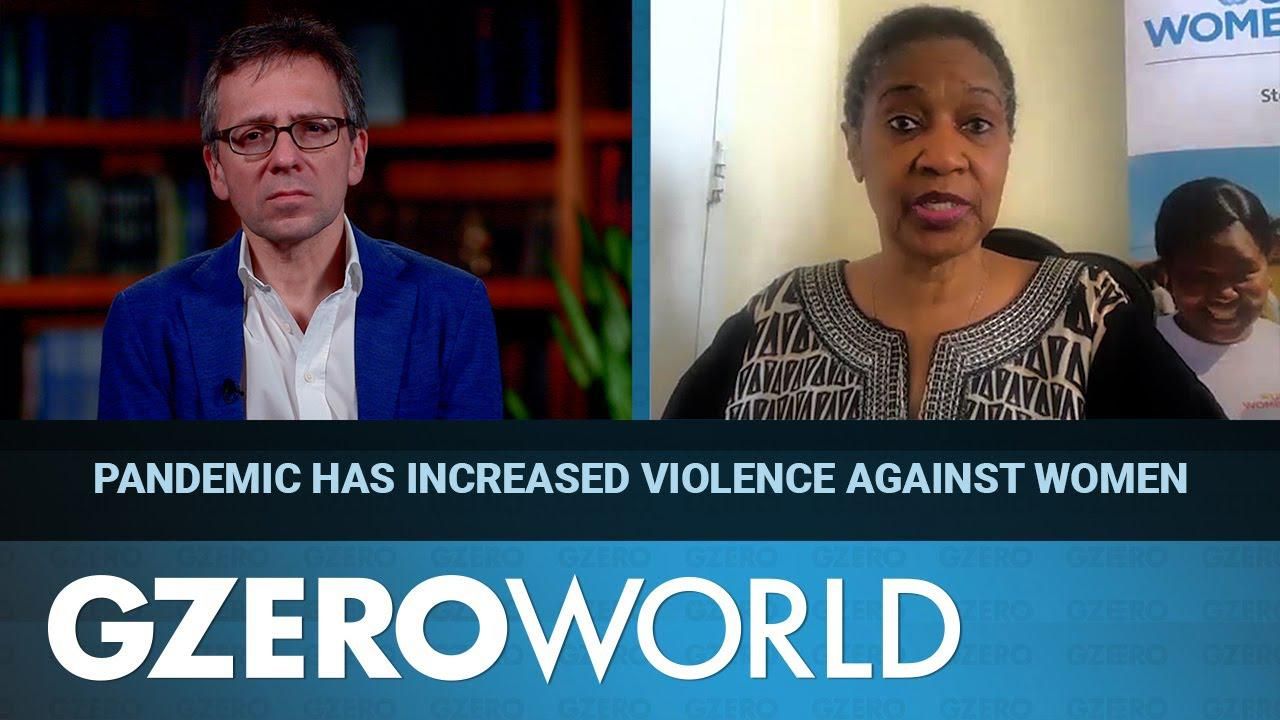How the pandemic has increased violence against women and worsened inequality

This week's horrific Atlanta shooting, which took the lives of six women of Asian descent, stirred outrage and fear across the US at a time when Asian and Asian American women are facing an onslaught of verbal and physical violence. But violence against women has been skyrocketing across the world since the start of the pandemic, says Phumzile Mlambo-Ngcuka, Executive Director of UN Women. Mlambo-Ngcuka joined Ian Bremmer on GZERO World to talk about how COVID-19 has turned back the clock on the global fight for gender equality and the toll that it has taken on girls, in particular.
In fact, the UN estimates that as many as 11 million girls who left school because of the pandemic will never return. At the same time, it is women primarily who have been getting the world through the worst pandemic, as they occupy the majority of frontline and healthcare jobs. You can catch Mlambo-Ngcuka's interview on the latest episode of GZERO World, which starts airing on public television stations nationwide starting Friday, March 19. Check local listings.